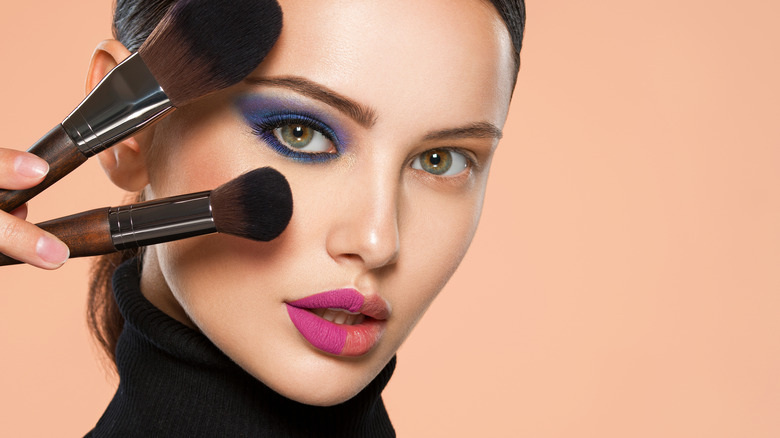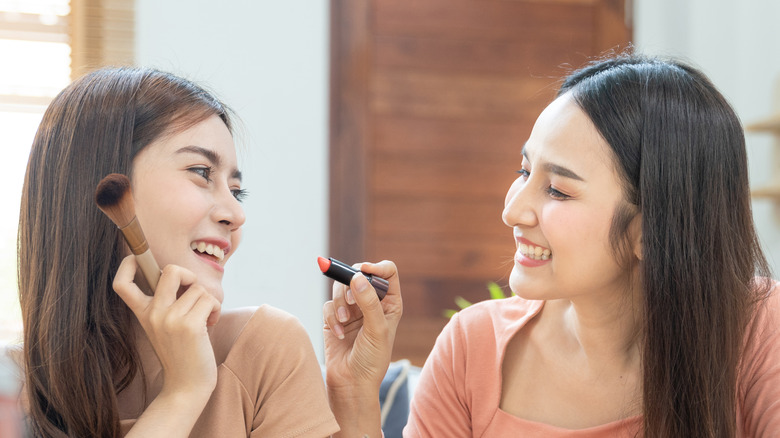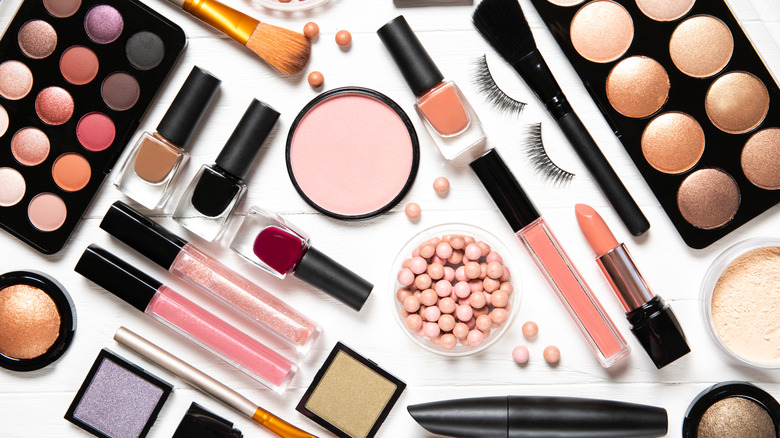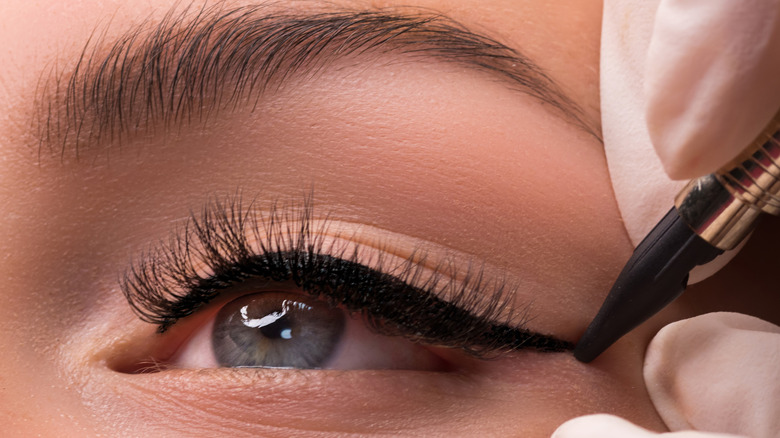The Best Way To Keep Your Makeup Sanitized
A makeup collection can grow in size without you even realizing it as you collect pieces when you need (and want) them. As makeup is something that will touch your skin and therefore impact your overall health, you want to keep your collection clean in the same way you keep your clothing and home in top shape. However, you may have never thought about how to make sure your makeup is sanitized and fresh.
In the United States, the cosmetics industry took in $1.9 billion in sales in 2020, making up 24% of the global market, according to Statista. With so much makeup sold each year in North America and across the world, it's imperative to make sure these items don't harm its consumer. Making sure your makeup is clean and sanitized the right way can become as important as ensuring your food is stored safely, as you never want to play around with your health. We've all heard the line that household items such as makeup and medicine have expiration dates, that dust and germs can be trapped in makeup brushes — but are we actually listening to the very sound advice?
Avoid this makeup-compromising habit
While you want to clean your makeup items periodically, before you even get to that point there are some dos and don'ts. One vital don't is to never share your makeup with anyone, according to Bustle. While it may be tempting to see if your friend looks as good in a shade as you do, sharing makeup can cause the spread of germs, leading to infections in the eye and cold sores on the lips, among other issues.
If you do end up sharing your makeup for any reason, clean each item immediately to prevent the spread of germs back and forth. You should also be careful about where you store your makeup, as leaving open containers of cosmetics on bathroom counters can result in the growth of multitude of bacteria.
"If you have a small bathroom that gets very steamy, move your makeup, brushes, and sponges to a clean, dry place where they're less likely to go through the humidity cycle and get moldy," said makeup artist Jenny Patinkin (via Mind Body Green).
A bottle of alcohol is key in keeping your makeup sanitized
An inexpensive bottle of isopropyl alcohol goes a long way — just pour some in a spray bottle and use it to clean each item of makeup correctly. For lipstick, just give it a little alcohol spritz and quickly wipe it clean. You can do the same thing with the neck of your foundation bottle. If you have any powdered makeup, just gently scrape off the top layer and spray a bit of alcohol on what's left and let it sit and air dry (via Byrdie).
However, when it comes to your makeup brushes, alcohol won't do the trick that specialized brush cleansers will. According to Byrdie, you only need to clean makeup brushes about once a week. The same goes for your makeup sponges. And like with the makeup itself, never share your brushes. If you do have to, wash them as soon as you get them back.
When should you throw out old makeup?
There may come a time when your cosmetics are too far gone to be sanitized, and instead, the items need to be tossed. In fact, you shouldn't even bother cleaning an item like mascara.
"When it comes to mascara, I'd recommend throwing it out rather than attempting to sanitize it if you have concerns," Gabriel De Santino, a makeup artist and CEO of Gabriel Cosmetics, told Byrdie. "The eye area is so delicate and it's best not to chance it."
Aside from checking the expiration date, there are simple ways to know if it's time for a cosmetic item to go. Sniff your mascara or other liquids to see if they smell off. If so, toss them into the wastebasket. Also, if you feel any changes in texture or see liquid products separating, place those items directly in the trash, as noted by Mind Body Green.
Perhaps the best mantra to use to make sure your makeup is safe is this. "When in doubt, throw it out."



